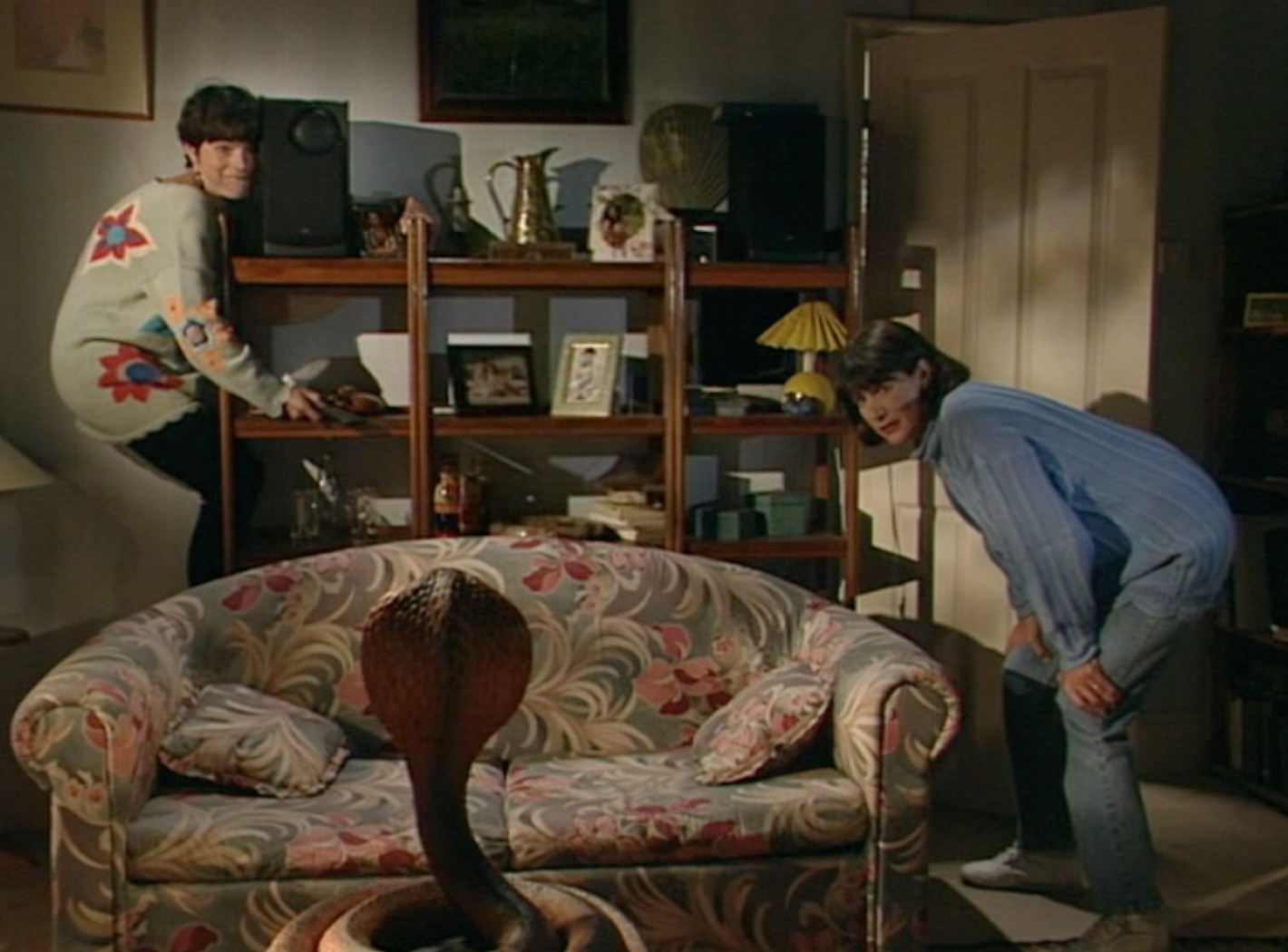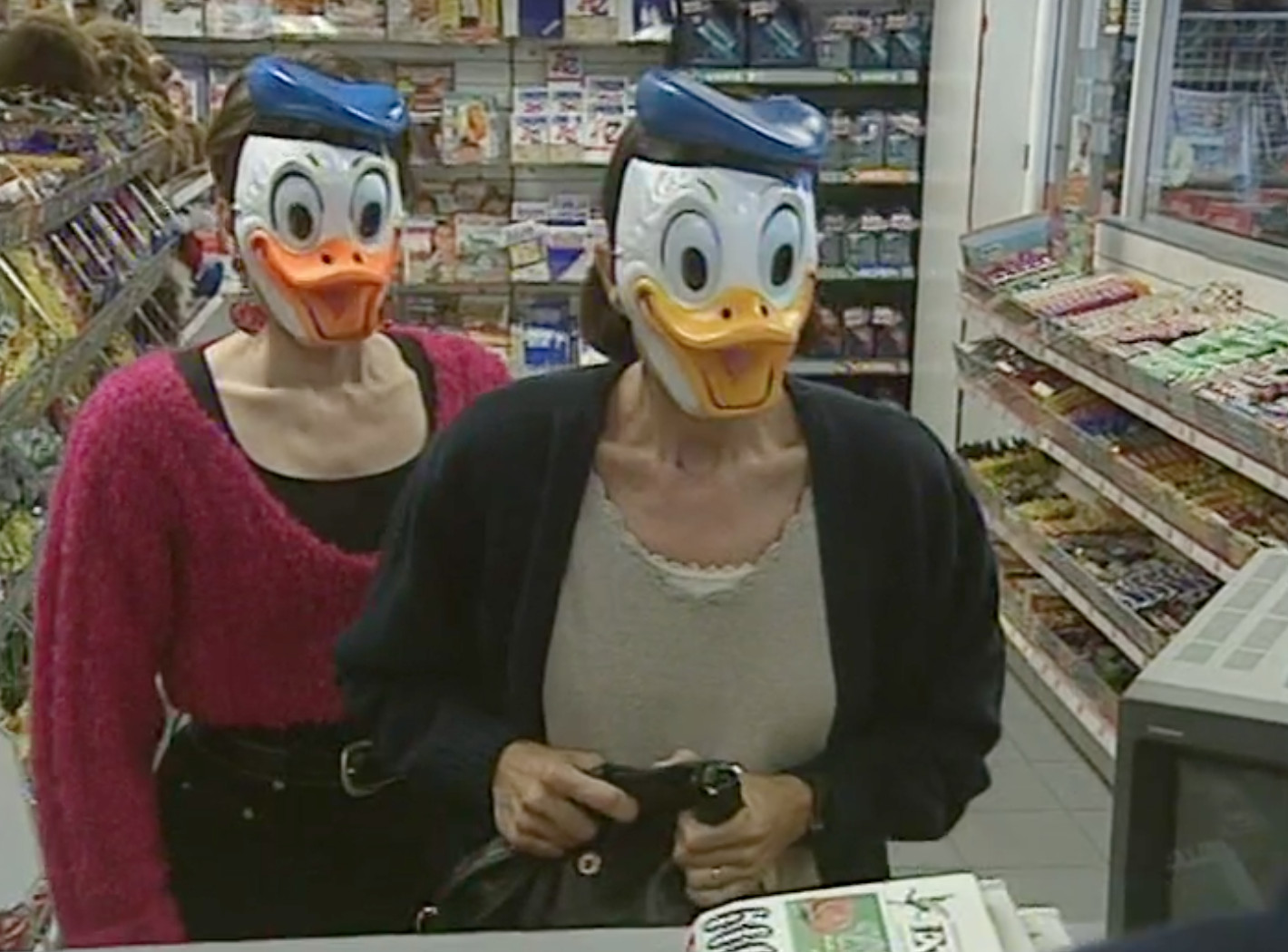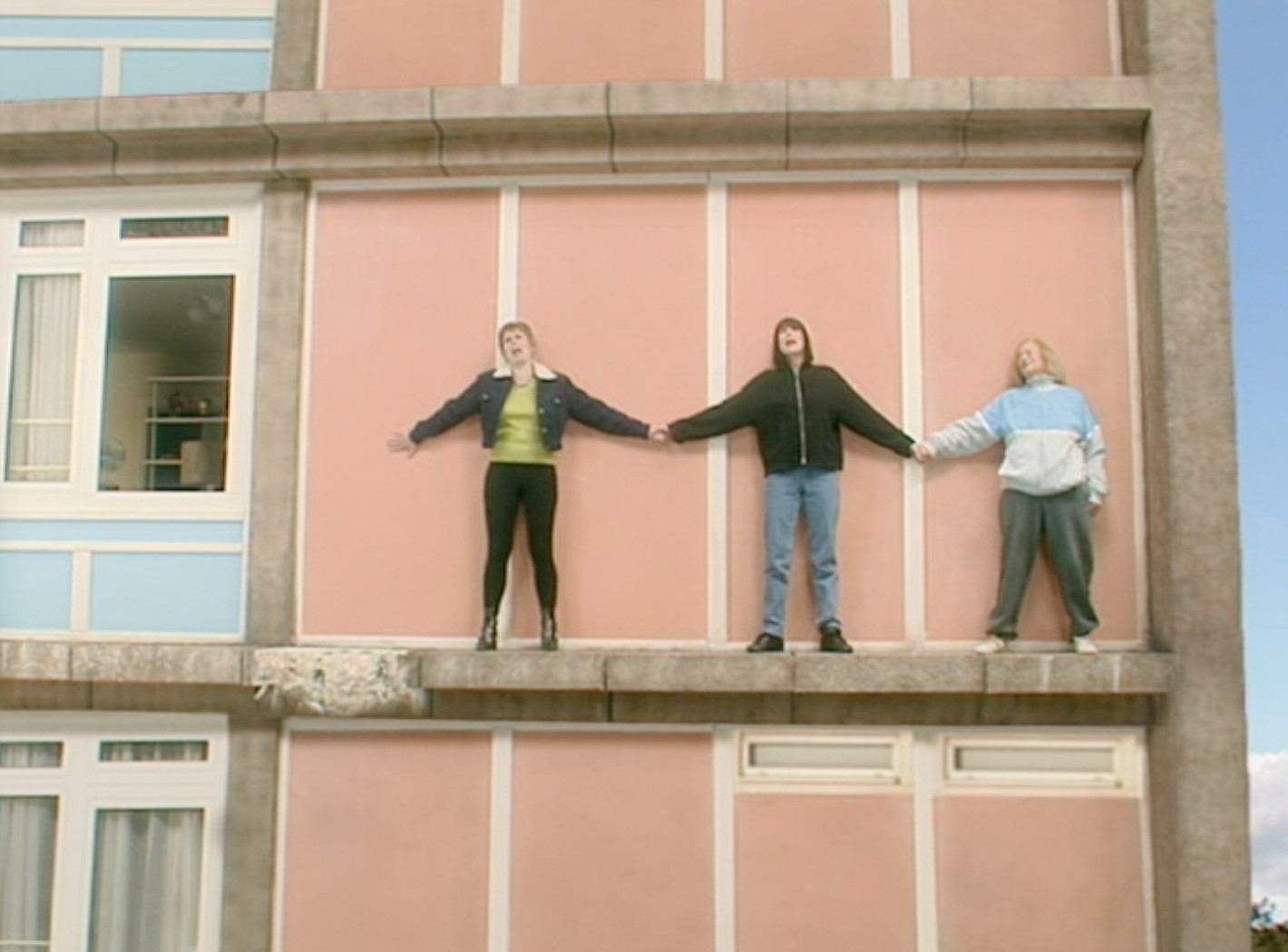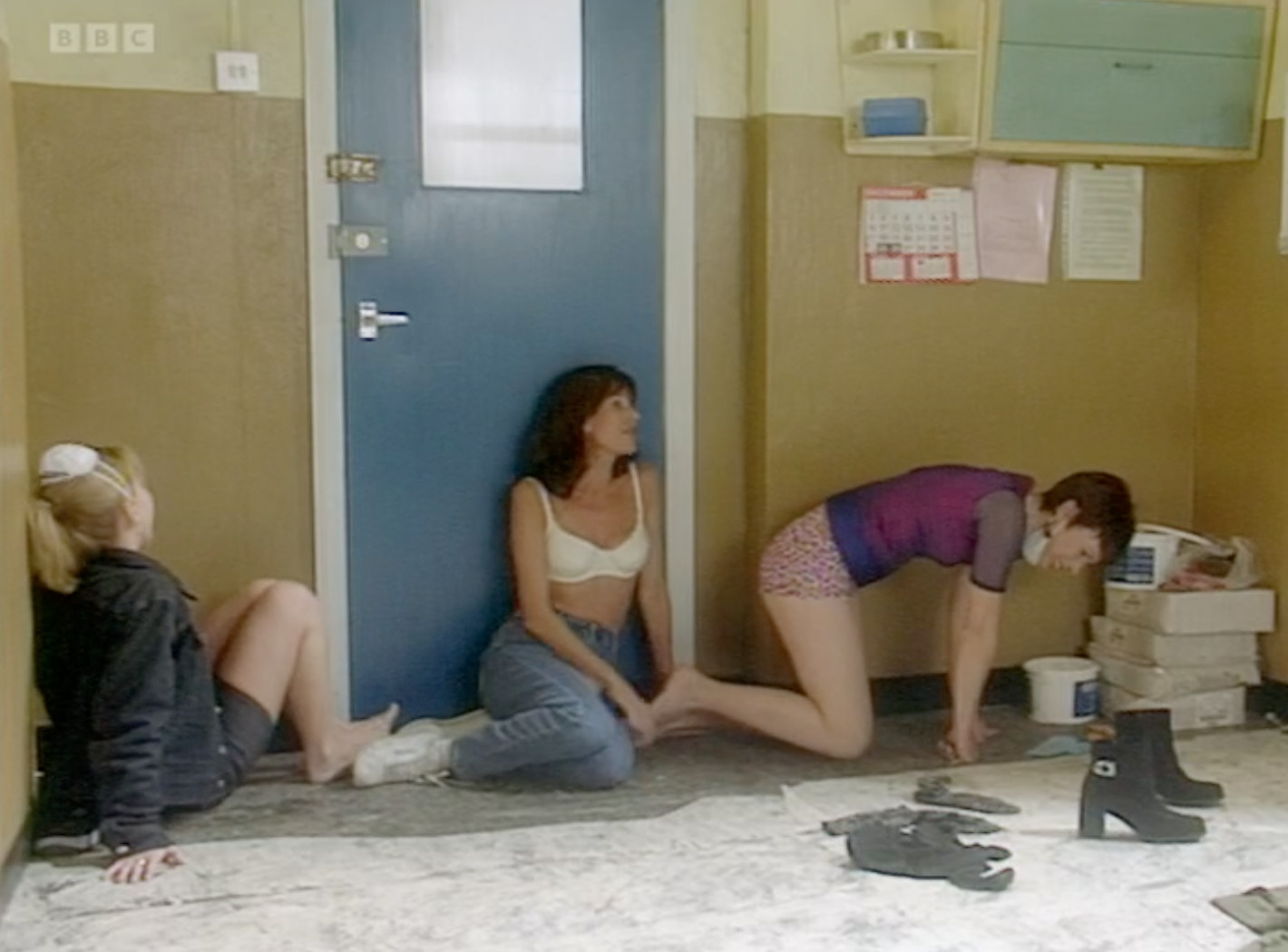What is the first thing that comes into your head when I say 2point4 children to you?
There is one obvious answer. “Great show, which never got the credit it deserved.” I’ve heard this said over and over in different ways. And I don’t think it’s wrong, per se.
But whenever I’ve talked about the show over the years – on Twitter and elsewhere – I’ve found something slightly different. So many people have told me that it was… erm, a great show, which never got the credit it deserved. Moreover, enough people watched it and loved it at the time that it managed to rack up eight series.
At some point, does it not stop becoming a great show which never got the credit it deserved, and merely become a great show?
Of such questions are comedy flame wars made. The answer, of course, is that it depends which people you hang around with. And it proves the risk of generalising about the kind of reaction to any given show. Among plenty of my friends, I’m not sure 2point4 children even needed any reappraisal when it was made available on iPlayer earlier this year. It got the right appraisal from them at the time.
If that isn’t a universal truth either, then we should be wary of trusting any one narrative of the show. There are a million of them.
* * *
Not that I watched every episode of 2point4 children at the time, mind. All I remember the first time round are bits, here and there.
For instance, the brilliant final moment from “Badger’s Bend” (TX: 21/9/93) is imprinted on my memory. After Ben accidentally blends a live fish in the kitchen, we get the following “behind-the-scenes” look at the programme.1
Now I’m older, I recognise the parallel between that joke, and this from Episode 2.5 of End of Part One (TX: 9/11/80), Andrew Marshall and David Renwick’s LWT sketch show:
The parallel isn’t quite that it’s the same joke, although both involve implied violence, animals, and a double bluff.2 But the commitment to causing as much trouble as possible in the timeslot is what’s really recognisable… along with how directly both jokes talk to the audience. That directness is something I really miss from a lot of current comedy.
My other strong memory of the show at the time is perhaps not a surprising one: the family holiday and ensuring hurricane in “Whoopee, We’re All Going to Die” (TX: 12/10/93). Who would have thought a family cowering in a bathroom in fear of death might be deemed slightly unnerving in a pre-watershed sitcom?
But I certainly didn’t watch every episode of the show back in the 90s. Exactly why is lost in the mists of time. Maybe there was something on the other side. Maybe it just never quite clicked with me properly. Maybe my parents didn’t like it.
I have a different suspicion, though. Certain people love to pretend that computers have destroyed families watching television together in the last ten or so years. But it was happening way before that. I spent most of the 90s playing on various Acorn machines. Maybe I was just too busy being crap at Repton to really pay attention to 2point4 children.
After all, David and Jenny spend an awful lot of time in their rooms too.
* * *
Still, it’s a pity I didn’t watch the show religiously during the 90s. Because I missed out on something I would have looked forward to every year: the traditional musical number every Christmas.
The first one, in “Misery” (TX: 22/12/92), is probably still my favourite. As much as anything else, it’s tied into the rest of the story; both Bette’s love of Perry Como’s Christmas TV specials, and her specific desire for her family to be part of it:
That minute and a half is everything I love about television. It’s having your cake and eating it in the best possible way: a heartfelt recreation of Perry Como’s nonsense, and a pisstake of it at the same time. And we are surely meant to believe that the “Merry Christmas from” caption at the beginning is one of the heartfelt parts.
While nothing quite beats the above for me, I have to give special mention to the brilliant “Be Kind to your Parents” which ends “Two Years Before The Mast” (TX: 26/12/96):
Adding some Simon Brint to your comedy show was never going to be a bad idea.
* * *
No, I’m not the John Hoare who appears in the end credits of the show. Here’s my explanation.
* * *
I worry about how the “weird” stuff in 2point4 children is occasionally discussed. If you’re not looking carefully, you might believe that the weirdness is simply spooned over the domestic sitcom like a sauce, to pep things up a bit. Or you might believe that the weird stuff is there merely to subvert things.
I don’t think anything could be further from the truth. The point of the weirdness in the show is surely to say: “Hey, aren’t families weird? And why don’t we talk about that enough?” We diminish the “family” part of our family sitcom at our peril. The domestic life of the Porters is still the true heart of the show, no matter what peculiar thing is going on in any given episode.
I love, for instance, the following line in “Greed” (TX: 2/10/95), when David is asked what he’d buy if he won the lottery:
DAVID: Oh, just the same as anyone else. Big house, big car, big computer, a pizza factory, and lots of prostitutes.
The desire for the teenage boy to shock their family by being slightly too rude is very funny… and very, very recognisable. Even more amusing is that after the brief moment of shock, the family can’t really be bothered doing anything about it.
I think it goes further than “families are weird”, though. The message I take from 2point4 children is: “Hey, you’re weird. We’re weird. And that’s fine.” And I do think this is qualitatively different from some of my other favourite sitcoms.
Fawlty Towers is perhaps the finest sitcom ever made, but while we’re expected to sympathise with Basil, we surely aren’t supposed to think he’s a role model. Ever Decreasing Circles is amazing, but in no sense are we supposed to think Martin is somebody to emulate. As for Blackadder, we’re explicitly not supposed to identify with the weirdos, for the most part. We’re asked to identify with the one sane person in the room.
Not 2point4 children. We’re on the side of people who break into Shirley Bassey’s lock-up and try on all her outfits, instead of getting your work done and then going to support your kid at school like a normal person. One reason the show is such a comfort watch is because it tells you that it doesn’t matter if you’re a bit strange, or even if you fail entirely. It won’t judge.
* * *
There is a telling line about 2point4 children, buried in the official paperwork for the series. For “I’m Going Slightly Mad” (TX: 8/9/92), the synopsis starts off as follows:
“Andrew Marshall’s comedy about women’s role in family life returns for a second series.”
I don’t recall this being stated quite so baldly anywhere else. But it is, of course, entirely correct. One real strength of 2point4 children is just having women talking to each other. There are a great many men writing comedy today who could learn something from Andrew Marshall.
One of my favourite scenes in the whole show is the scene where Rona finds and takes home a baby, in “And Now The Screaming Starts” (TX: 20/12/96). The centrepiece of the episode is a brilliant 12 minute scene between Bill and Rona, of which the below is just a part.
The key exchange, when Bill reads the note left by the mother who abandoned her baby:
BILL: This is like… something written by a child.
RONA: I know.
Those ten words mean everything. It’s incredible writing by Marshall, delivered beautifully by Belinda Lang and Julia Hills. Six series in, and the show was giving us stuff like this.
The other notable lines from the above scene are, of course:
BILL: How could anyone leave their baby like that?
RONA: ‘Cos they have no choice.
The episode goes out of its way to show understanding and care to someone in a terrible situation. Someone we never actually see, to boot. It’s beautifully in-character for Rona, who discovered in “The Truth Is Out There” (TX: 6/11/95) that her parentage wasn’t quite what she thought. But the most striking thing for me is the similarity with sister, slightly strange BBC sitcom The Brittas Empire, and how that show resolutely refuses to judge Helen Brittas for her affairs. The generosity of spirit of both shows is one of the very best things about them.
But maybe the above is too easy an argument. 2point4 children is supposed to be a comedy, after all. Luckily, the show doesn’t make the obvious mistake. It could have been a family of hilarious wackos, with Bill being the sensible glue who holds them together. It would have been utterly tedious, and borderline misogynistic. For instance, if we check out how Ricky Gervais sees women:
GERVAIS: Men don’t grow up – that’s always the theme I’ve had, women as adults and men as boys. Women don’t act like that! Proper stupidity is fascinating.
Luckily, in 2point4 children, we get this instead:






The most feminist part of 2point4 children is that Bill is thoroughly ridiculous.
* * *
Back in 1999, a friend got tickets to see 2point4 children recorded. It would turn out to be the last series, but of course we didn’t know that at the time. I don’t think I was excited to see the show specifically; I think I’d drifted away from it by then. I just wanted to see a TV show recorded.
On the day, we got ourselves organised, and got ready to go to the coach station to travel down from Nottingham. But wait! One of my friends suddenly wanted to go as well. I don’t think she even had a ticket; she was going to try and cadge her way in. This was someone who I’d wanted to have sex with for ages, so of course we waited for her, and got the coach after the one we were supposed to get. Clearly, the show’s feminist principles had entirely failed to rub off on me. As indeed did she.
We got there too late, of course. Far, far too late. Everyone had already gone into the studio, and there were no seats left. At the time, I was mildly disappointed. Now I look back, I’m utterly gutted. Because watching it for the first time recently, that last series is great. Gary Olsen in particular is as funny as he ever had been. Possibly even funnier.3 The series doesn’t feel like it’s running out of steam in the slightest.
You know what? Maybe I just didn’t deserve the show back in the 90s. If I wasn’t going to watch something properly which featured Jenny bringing her boyfriend home, and had the sheer cheek to call the episode “Sticky Fingers”, then I don’t know what I wanted out of comedy.
I know better now.
Incidentally, here’s a little tale of false memories. I thought I’d seen this clip on the Points of View episode broadcast shortly afterwards. So I went and checked it. The episode broadcast the week after the “Badger’s Bend” aired (TX: 29/9/93) certainly mentions the scene… but doesn’t show a clip of it. I must have remembered it from original broadcast, or perhaps its repeat the following year. I hate my brain. ↩
Oh, the double bluff in the End of Part One sketch? We actually do see a proper severed head at the end of the episode… ↩
I love his reaction to the clapperboard in “Fame” (TX: 16/11/99). ↩
